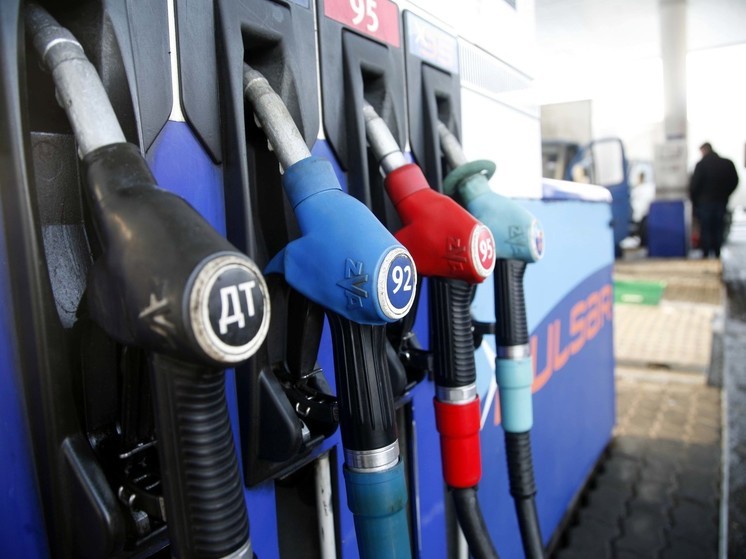“Unlike gas, petroleum products cannot be saved: you can’t put less fuel on a plane.”
In recent days, many experts in the fuel market have raised the alarm: due to Houthi attacks on ships in In the Red Sea, India may curtail supplies of petroleum products to Europe. Carrying fuel around Africa is too long and expensive, and across the Red Sea is dangerous. Hence the conclusion: Europe may be left without diesel and gasoline.
MK decided to find out how likely such a situation is, and most importantly, how will it affect our fuel market? Answered by Sergei PIKIN, Director of the Energy Development Fund.

— The traders themselves who sell petroleum products are inflating it. This allows them to sell the product faster and earn additional profit. So the rumors are most likely speculative.
— Of course, market prices for fuel in Europe quickly responded to the crisis in the Red Sea, because the cost of transportation from India to Europe actually increased, but this is not a reason to stop the supplies themselves. It’s just that any speculation on this topic raises the market even more and makes it even more attractive for traders.
— Europe has nowhere else to get new volumes of fuel except from India. There are no supplies from North Africa; there is a problem with refineries there; for example, Tunisia does not produce fuel in the quantities that Europe needs. It is easier for the United States to supply petroleum products to Latin America, and they supply crude oil to Asia. Each product has its own direction. It used to be like this: petroleum products were transported over short distances, and oil over long distances. But after Western sanctions were announced on our oil, the usual order of things was turned upside down. Now we take our oil far away to India, where it is processed into diesel and transported to Europe. What kind of cost are we talking about here? It is sky-high compared to pre-sanction times. And the end consumer pays.
Although I would like to note that now prices for diesel and gasoline in Europe are far from the highest. Last summer, prices actually went through the clouds: a ton of diesel cost a thousand dollars! Although now is also the highest season for consumption.
— They don’t have seeding in such a classic version as we do. But consumption will actually increase several times closer to summer, when the holiday season begins and people will travel a lot. So the market will adjust itself to the prices that will satisfy the supplier. Because if there is no supply, this will lead to a shortage, which in turn will raise prices even higher. These are the laws of the market, a classic of the genre.
— Petroleum products cannot be saved, unlike gas. It’s easier with gas: you can, for example, lower the temperature in the house or take a cool shower instead of a hot one. But you can't put less fuel in a plane or car in the hope that it will cover the same distance as with a full tank. The only thing you can do is replace driving by walking. But it is unlikely that Europeans will agree to such savings.
— If we consider that in fact this fuel of ours reaches Europe only under the flag of another country, then yes, we will be in the black. And the higher the prices, the more we will win. This increases the demand from Indian refineries for our oil, so we will be able to reduce the discount on it, but there is also a flip side to the coin. High fuel prices in Europe create pressure on our domestic market.
— Then, indeed, one of the reasons for the rise in diesel prices was that all oil refining companies began to export. The higher their motivation to export, the more exposed the domestic fuel market is. However, I don’t think it will be like last year. The government has learned to cut off the tails: remember, in the fall they took and banned the expert, as they say, why bother and regulate the situation on the market when you can just take it and ban it.
— I hope that The average car enthusiast is unlikely to notice a sharp increase in fuel prices. Even last year, when prices on the stock exchange surged, the increase in gasoline prices at gas stations did not rise above inflation. In addition, market prices then were not comparable to today. In the fall, diesel and 95 gasoline cost 75 thousand rubles per ton, and 92 gasoline cost about 70,000 rubles. Now diesel is around 58,000, 95 is 53 thousand rubles, 92 is generally below 50,000 rubles. per ton. So it doesn’t even smell like a crisis.
— Supplies fell, but for a completely different reason. From January 1, as part of the OPEC+ agreements, we are obliged to reduce production volumes. The Houthi attacks, of course, affect the cost of logistics and ship insurance, but they affected us to a lesser extent than our Western partners. So, I think that the results of 2024 for oil workers and the budget will be no worse than 2023. Or maybe even better.


